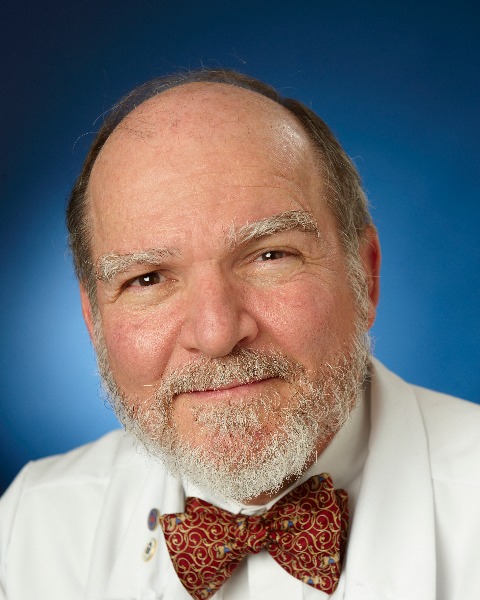Back
Medical & Pediatric Oncology and Trials
(P 154) IRINOTECAN DOSE SCHEDULE FOR THE TREATMENT OF RECURRENT EWING SARCOMA

Paul A. Meyers, MD
Vice Chair, Department of Pediatrics
Memorial Sloan Kettering Cancer Center
New York, New York, United States
Author(s)
Objective: To analyze the impact of irinotecan dose schedule on the probability for objective response in the treatment of recurrent Ewing sarcoma. The combination of irinotecan and temozolomide has demonstrated activity in the treatment of recurrent Ewing sarcoma. Initial reports from the St. Jude Children’s Research Hospital (SJCRH) showed that schedules which called for 10 days of irinotecan demonstrated greater activity than schedules which utilized shorter durations of administration.
Methods: We analyzed published reports of the use of the combination of irinotecan and temozolomide for the treatment of Ewing sarcoma which recurred after initial treatment with multiagent chemotherapy, surgery and/or radiotherapy. All published reports used tumor objective response as the primary outcome variable. We compared the results from all cohorts which administered irinotecan on a 5 day schedule to the results from all cohorts which administered irinotecan on a 10 day schedule.
Results: We identified 312 patients in 13 publications. The response rates reported with a 10 day irinotecan schedule were higher than those reported with a 5 day irinotecan schedule. Among 94 patients treated with a 10 day irinotecan schedule there were 48 objective responses (51%)(Table 2). Among 218 patients treated with a 5 day irinotecan schedule there were 65 responses (30%). Since 2013 we have conducted a prospective phase II clinical trial evaluating the addition of cycles of irinotecan and temozolomide added to cycles of cyclophosphamide, doxorubicin and vincristine and cycles of ifosfamide and etoposide for the treatment of newly diagnosed Ewing sarcoma (NCI NCT01864109). All cycles administer irinotecan 20 mg/m2/day x 10 days and temozolomide 100 mg/m2/day x 5 days. Protocol guidelines specify the administration of a second generation cephalosporin beginning two days prior to administration of irinotecan and continuing throught the cycle. Guidelines also specify administration of activated charcoal on each day of administration of irinotecan. Adverse events are recorded by research nurses at the completion of each cycle of therapy. As of May, 2022, we have administered 384 cycles of this combination. We have observed the following frequency of adverse events grade 3 or higher: febrile neutropenia 0%, vomiting < 1%, diarrhea < 1%. This compares favorably to the frequency of adverse events grade 3 or higher reported for the irinotecan temozolomide arm of the ReECur study: febrile neutropenia 8%, vomiting 10%, diarrhea 24%.
Conclusion: These data suggest that, in the absence of definitive evidence that shorter schedules of irinotecan are as effective as longer schedules, when we employ irinotecan in the treatment of Ewing sarcoma we should utilize the longer administration schedule.
IrinotecanTemozolomideDoseScheduleTable1.docx
IrinotecanTemozolomideTablel2_5dayvs10day.docx
Methods: We analyzed published reports of the use of the combination of irinotecan and temozolomide for the treatment of Ewing sarcoma which recurred after initial treatment with multiagent chemotherapy, surgery and/or radiotherapy. All published reports used tumor objective response as the primary outcome variable. We compared the results from all cohorts which administered irinotecan on a 5 day schedule to the results from all cohorts which administered irinotecan on a 10 day schedule.
Results: We identified 312 patients in 13 publications. The response rates reported with a 10 day irinotecan schedule were higher than those reported with a 5 day irinotecan schedule. Among 94 patients treated with a 10 day irinotecan schedule there were 48 objective responses (51%)(Table 2). Among 218 patients treated with a 5 day irinotecan schedule there were 65 responses (30%). Since 2013 we have conducted a prospective phase II clinical trial evaluating the addition of cycles of irinotecan and temozolomide added to cycles of cyclophosphamide, doxorubicin and vincristine and cycles of ifosfamide and etoposide for the treatment of newly diagnosed Ewing sarcoma (NCI NCT01864109). All cycles administer irinotecan 20 mg/m2/day x 10 days and temozolomide 100 mg/m2/day x 5 days. Protocol guidelines specify the administration of a second generation cephalosporin beginning two days prior to administration of irinotecan and continuing throught the cycle. Guidelines also specify administration of activated charcoal on each day of administration of irinotecan. Adverse events are recorded by research nurses at the completion of each cycle of therapy. As of May, 2022, we have administered 384 cycles of this combination. We have observed the following frequency of adverse events grade 3 or higher: febrile neutropenia 0%, vomiting < 1%, diarrhea < 1%. This compares favorably to the frequency of adverse events grade 3 or higher reported for the irinotecan temozolomide arm of the ReECur study: febrile neutropenia 8%, vomiting 10%, diarrhea 24%.
Conclusion: These data suggest that, in the absence of definitive evidence that shorter schedules of irinotecan are as effective as longer schedules, when we employ irinotecan in the treatment of Ewing sarcoma we should utilize the longer administration schedule.
IrinotecanTemozolomideDoseScheduleTable1.docx
IrinotecanTemozolomideTablel2_5dayvs10day.docx
